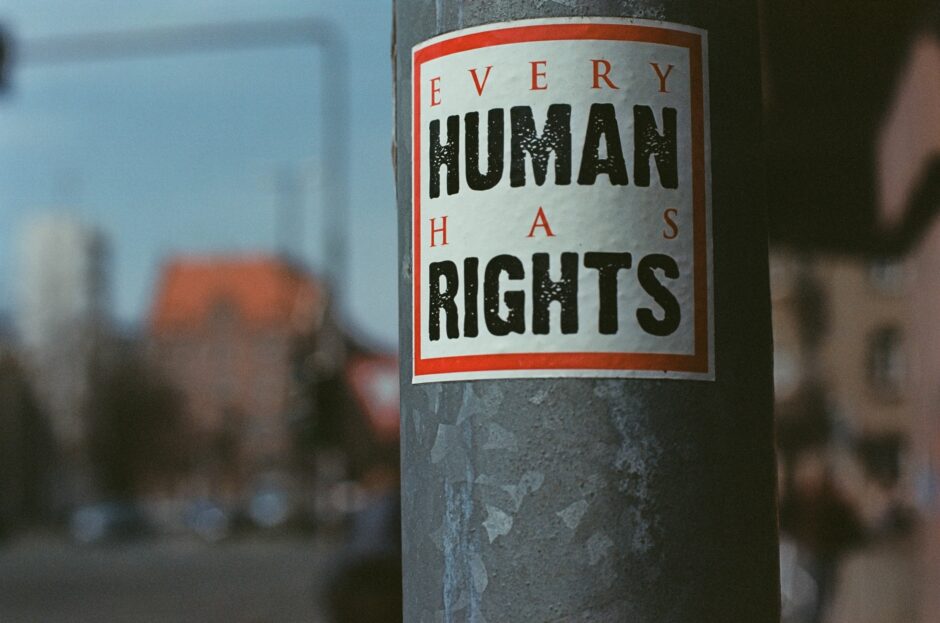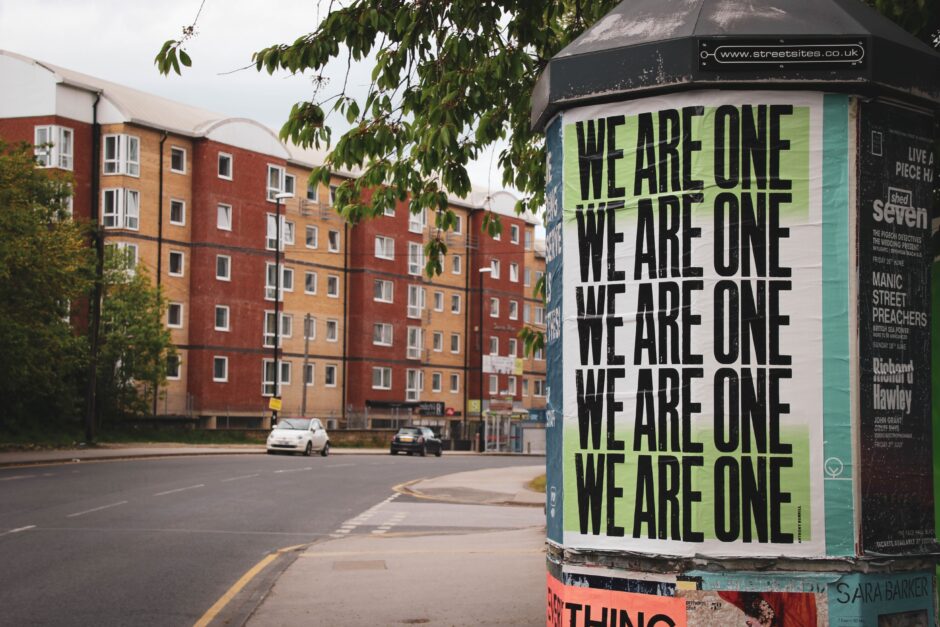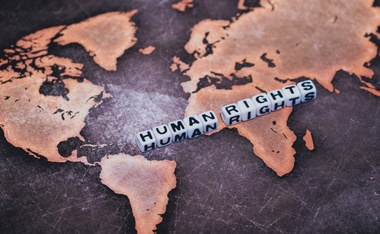The views expressed in our content reflect individual perspectives and do not represent the authoritative views of the Baha'i Faith.
It might surprise some people to know that the whole idea of inherent human rights and freedoms is a relatively new concept in the history of the world.
For millennia – actually, up until about 175 years ago – very few groups or governments recognized the concept of innate, inborn, universal human freedoms and rights. Typically, throughout much of the world’s past history, people were born into a class or caste or country that determined whether they would have any rights or freedoms at all. Only in recent history has that dynamic begun to change.
In one of the most significant milestones toward universal rights and freedoms, almost a year before World War II began, in January of 1941, United States President Franklin Delano Roosevelt made a landmark State of the Union speech that offered a clear vision for a better global future for all people.
RELATED: Why Justice Is Needed in the Prison System

Called the Four Freedoms speech, Roosevelt combined two of the recognized American constitutional guarantees — freedom of speech and freedom of religion — with two new concepts, which he called “freedom from want” and “freedom from fear.”
In those two categories, Roosevelt included several distinctly Baha’i concepts: economic cooperation, interdependence among nations, and a worldwide reduction in armaments to prevent national aggression. Those two “freedoms” directly reflected the teachings of Baha’u’llah, the prophet and founder of the Baha’i Faith, who wrote:
O kings of the earth! We see you increasing every year your expenditures, and laying the burden thereof on your subjects. This, verily, is wholly and grossly unjust. Fear the sighs and tears of this wronged One, and lay not excessive burdens on your peoples. Do not rob them to rear palaces for yourselves; nay rather choose for them that which ye choose for yourselves. Thus We unfold to your eyes that which profiteth you, if ye but perceive …
O rulers of the earth! Be reconciled among yourselves, that ye may need no more armaments save in a measure to safeguard your territories and dominions. Beware lest ye disregard the counsel of the All-Knowing, the Faithful.
Be united, O kings of the earth, for thereby will the tempest of discord be stilled amongst you, and your peoples find rest, if ye be of them that comprehend. Should any one among you take up arms against another, rise ye all against him, for this is naught but manifest justice.
In his speech President Roosevelt said:
In the future days, which we seek to make secure, we look forward to a world founded upon four essential human freedoms.
The first is freedom of speech and expression — everywhere in the world.
The second is freedom of every person to worship God in his own way — everywhere in the world.
The third is freedom from want — which, translated into world terms, means economic understandings which will secure to every nation a healthy peacetime life for its inhabitants—everywhere in the world.
The fourth is freedom from fear — which, translated into world terms, means a world-wide reduction of armaments to such a point and in such a thorough fashion that no nation will be in a position to commit an act of physical aggression against any neighbor — anywhere in the world.
That is no vision of a distant millennium. It is a definite basis for a kind of world attainable in our own time and generation. That kind of world is the very antithesis of the so-called new order of tyranny which the dictators seek to create with the crash of a bomb.
These four freedoms – thanks in part to the diligent work of First Lady Eleanor Roosevelt after the passing of her husband – then became part of the Preamble of the Universal Declaration of Human Rights, adopted by the United Nations on 10 December 1948:
Whereas disregard and contempt for human rights have resulted in barbarous acts which have outraged the conscience of mankind, and the advent of a world in which human beings shall enjoy freedom of speech and belief and freedom from fear and want has been proclaimed the highest aspiration of the common people ….
As a result, every December 10th the world observes International Human Rights Day to celebrate the signing of the Universal Declaration of Human Rights. You’ve probably heard of the UDHR, but have you heard of the International Bill of Human Rights?
RELATED: The Spiritual Case for Destigmatizing Homelessness
During this coming year, the global community of nations and peoples will mark more human rights milestones with the anniversary of the two subsequent International Covenants on Human Rights: the International Covenant on Economic, Social and Cultural Rights and the International Covenant on Civil and Political Rights, adopted by the United Nations General Assembly on 16 December 1966. The UN’s official statement says:
Those two Covenants, together with the Universal Declaration of Human Rights, form the International Bill of Human Rights, setting out the civil, political, cultural, economic, and social rights that are the birth right of all human beings.

So when we celebrate the International Bill of Human Rights, our recognition revolves around the theme of the four basic freedoms: freedom of speech, freedom of worship, freedom from want, and freedom from fear. Baha’is believe that Baha’u’llah’s revelation has brought these freedoms to us all, as this 1986 message from the Universal House of Justice sets forth:
The spirit of liberty which in recent decades has swept over the planet with such tempestuous force is a manifestation of the vibrancy of the Revelation brought by Baha’u’llah. His own words confirm it. “The Ancient Beauty,” He wrote in a soul-stirring commentary on His sufferings, “hath consented to be bound with chains that mankind may be released from its bondage, and hath accepted to be made a prisoner within this most mighty Stronghold that the whole earth may attain unto true liberty.”
Might it not be reasonably concluded, then, that “true liberty” is [Baha’u’llah’s] gift of love to the human race? Consider what Baha’u’llah has done: He revealed laws and principles to guide the free, He established an Order to channel the actions of the free, He proclaimed a Covenant to guarantee the unity of the free.
Thus, we hold to this ultimate perspective: Baha’u’llah came to set humanity free. His Revelation is, indeed, an invitation to freedom – freedom from want, freedom from war, freedom to unite, freedom to progress, freedom in peace and joy.
Today, while you’re living your life in a free society, or constrained in a culture without these essential freedoms, you can give thanks that the Baha’i revelation has “come to set humanity free.”
















Comments
Sign in or create an account
Continue with Googleor